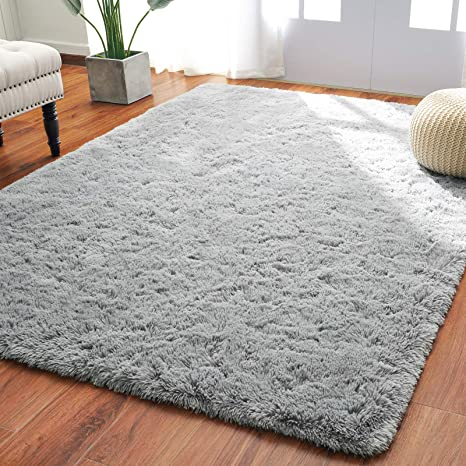Have you ever stared at your dusty floors, wondering if that bottle of laundry detergent could work its magic on the grime? It’s a question that pops up in many a household, a tempting shortcut when cleaning supplies are low. But is it truly a viable option? Can laundry detergent, the hero of our laundry routines, conquer the challenges of a dirty floor?

Image: laundrydetergentideas.com
We’re about to delve into this question, exploring the science behind cleaning, the pros and cons of using laundry detergent on your floors, and offering practical advice to make informed decisions for your home.
Understanding the Science of Cleaning
Before we dive into laundry detergent, let’s understand the basic principles of cleaning. Dirt and grime, the enemies of a sparkling floor, are often made up of a combination of things:
- Dust: Tiny particles of dirt, pollen, and other debris floating in the air.
- Grease: Sticky residue from food, oils, and other sources.
- Bacteria: Microscopic organisms that can cause odor and illness.
- Dirt: Soil, sand, and other outdoor particles carried in.
Effective cleaning requires a product that can break down these components and lift them off the surface. This is achieved by:
- Surfactants: These chemicals reduce surface tension, allowing water to penetrate and loosen dirt.
- Solvents: They dissolve greasy substances, making them easier to remove.
- Enzymes: These natural catalysts break down organic matter like food stains.
Laundry detergent is designed to tackle tough stains and grime on fabrics, utilizing a potent combination of surfactants, enzymes, and sometimes solvents. But is that enough to make it a viable floor cleaner?
Can You Use Laundry Detergent on Your Floors? The Pros and Cons
While laundry detergent can sometimes appear to work on floors, it’s not the ideal solution, and here’s why:
Pros:
- Initial Cleaning Power: Laundry detergent can initially break down some dirt and grime, especially on hard surfaces like tile or laminate. The surfactants and enzymes in the formula can loosen dirt and remove stains.
- Cost-Effectiveness: If you are in a pinch, using laundry detergent can be cheaper than dedicated floor cleaners.
- Versatility: Many people find it convenient to have one cleaning product for multiple purposes.
Cons:
- Potential for Damage: Laundry detergent can be harsh on certain floor surfaces, particularly wood floors. It can strip away protective finishes, leaving the wood vulnerable to scratching and water damage.
- Residue and Slickness: Laundry detergents, especially those with fabric softeners, can leave behind a sticky residue that attracts more dirt and can make floors slippery. This residue can be difficult to remove, making the surface feel grimy.
- Lack of Specialized Cleaning Agents: Laundry detergents don’t contain the specific chemicals needed to tackle certain floor stains or issues like mold and mildew, which are common problems in bathrooms and kitchens.
When to Avoid Laundry Detergent on Floors
While the temptation to use laundry detergent might be strong, there are certain situations where it’s essential to avoid it:
- Wood Floors: The harsh chemicals in laundry detergent can strip the protective finish off wood floors, leading to damage and reducing their lifespan.
- Sealed Stone Floors: Many sealed stone surfaces, like granite and marble, are susceptible to etching from strong chemicals.
- Delicate Tile: Certain types of tiles, like those with intricate finishes or unglazed surfaces, can be damaged by the aggressive cleaning action of laundry detergent.
- Hard-to-Clean Areas: Areas like bathrooms and kitchens often require specialized cleaners to combat mold, mildew, and tough grease.

Image: www.homespaservices.net
Safe and Effective Alternatives for Cleaning Floors
If you are looking for a reliable way to clean your floors, consider these options:
- Specific Floor Cleaners: These products are designed to be gentle on different floor surfaces and address specific cleaning needs like removing grease, disinfecting, or polishing.
- DIY Floor Cleaners: You can create effective floor cleaning solutions at home using simple ingredients like vinegar, baking soda, and essential oils.
- Natural Cleaners: Many environmentally friendly cleaners are available that are effective at removing dirt and grime without harsh chemicals or leaving behind residue.
Expert Advice and Actionable Tips
Here are some tips from cleaning professionals:
- Test Before You Treat: Always test your chosen cleaning solution in an inconspicuous area of your floor to ensure it doesn’t cause any damage.
- Read the Labels: Consult the manufacturer’s instructions for your specific floor type before using any cleaning product.
- Dilute Your Cleaner: If you do decide to use laundry detergent, always dilute it before applying it to your floors. Use a 1:10 ratio of detergent to water.
- Rinse Thoroughly: Rinse your floors well after cleaning with laundry detergent to remove any leftover residue that could attract more dirt.
Can You Use Laundry Detergent To Clean Floors
Conclusion
So, can you use laundry detergent to clean floors? The answer is a cautious maybe. While it might offer some temporary cleaning power, the risks to your floors and the potential for residue outweigh the benefits.
For a safe and effective cleaning experience, choose dedicated floor cleaners, explore natural cleaning alternatives, or craft your own DIY solutions. Remember, a clean home is a healthy home, and the right cleaning approach can make all the difference.






